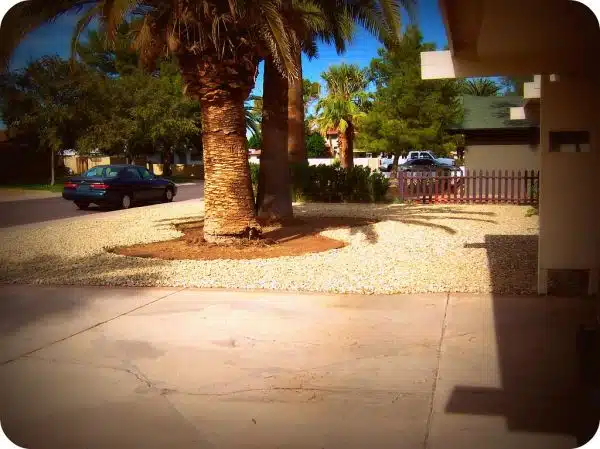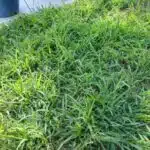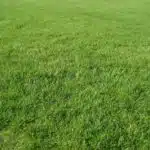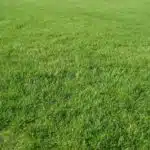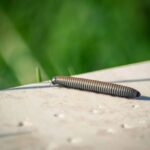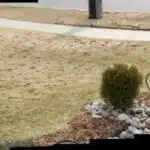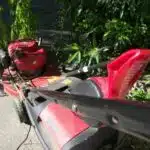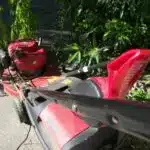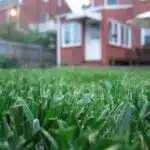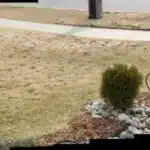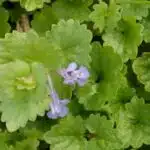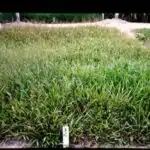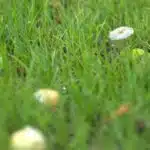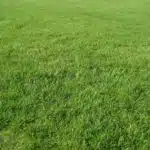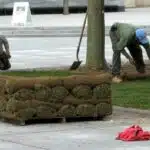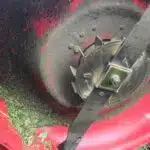Bermuda grass, also known as devil’s grass or couch grass, is a perennial weed that can be difficult to eradicate. It spreads rapidly through underground stems and can quickly take over lawns, gardens, and other areas where it is not wanted. If left unchecked, Bermuda grass can choke out desired plants and become a nuisance for homeowners and gardeners alike.
Fortunately, there are several effective ways to kill Bermuda grass. In this article, we will explore five different methods for getting rid of this pesky weed. From manual removal to chemical treatments, each method has its own advantages and disadvantages. By understanding the pros and cons of each approach, you can choose the best way to eliminate Bermuda grass from your property and reclaim your lawn or garden space.
Understanding Bermuda Grass
Bermuda grass, also known as devil’s grass, is a type of weed that can quickly take over a lawn if left unchecked. It is a warm-season grass that thrives in hot and humid climates, making it particularly problematic in southern regions of the United States. Bermuda grass growth is fast and aggressive, spreading through both seeds and underground stems called rhizomes.
Lawn management is essential to prevent Bermuda grass from taking over your yard. The first step is to maintain healthy soil by regularly fertilizing and aerating your lawn. This will promote the growth of desirable grasses while discouraging the growth of weeds such as Bermuda grass. Additionally, mowing your lawn at the proper height (usually around 2-3 inches) can help prevent Bermuda grass from establishing itself.
Despite these preventive measures, Bermuda grass can still be difficult to control. Chemical herbicides are often an effective solution but may not be desirable for those who prefer more natural methods or have children or pets playing on their lawns. In such cases, manual removal may be the best option.
Manual Removal
As we discussed in the previous section, Bermuda grass can be quite a nuisance for any homeowner. It spreads quickly and aggressively, often taking over large portions of your lawn or garden. Understanding the characteristics of this invasive grass is crucial to effectively getting rid of it. In this section, we will discuss the first method of removing Bermuda grass: manual removal.
Mechanical removal is the most straightforward method for removing Bermuda grass. This involves physically digging up the roots and rhizomes from the soil. This may seem like a daunting task, especially if you have a large area to cover, but with patience and persistence, it can be done. The best time to do this is during spring when the grass is actively growing.
One of the most important things to keep in mind during mechanical removal is to ensure that you remove all parts of the root system. Just cutting off the leaves or stems won’t be enough as Bermuda grass can easily grow back from its remaining roots and rhizomes. A sharp spade or hoe can make this process easier by allowing you to cut through the soil with less effort. Once you have removed all visible parts of the plant, don’t forget to dispose of them properly to prevent regrowth.
Moving on from manual removal, another effective way to get rid of Bermuda grass is smothering with mulch. This method involves covering the affected area with a thick layer of organic material such as wood chips or leaves. By doing so, you prevent sunlight from reaching the grass and deprive it of its energy source, eventually killing it off completely. Stay tuned for our next section where we delve deeper into smothering with mulch as a method for controlling Bermuda grass growth!
Smothering With Mulch
Mulch is an effective tool for suppressing Bermuda grass growth by preventing the absorption of sunlight and water. Organic materials provide ideal smothering mulch as they create an environment that is unable to sustain the growth of the weed. Sunlight deprivation is achieved through the application of thick layers of mulch over Bermuda grass plants, while water deprivation is induced through the combination of mulch and an impermeable weed barrier. Both processes work together to reduce the growth of the weed and can be used to effectively eliminate it over time.
Mulch
Mulching is an effective way to smother Bermuda grass and prevent it from growing. One of the benefits of mulching is that it helps retain moisture in the soil, thereby reducing the need for frequent watering. Another advantage of mulch is that it suppresses weed growth, including Bermuda grass. Mulching also adds organic matter to the soil, which improves its overall health and fertility.
When it comes to killing Bermuda grass with mulch, there are several types that work best. Organic mulches such as wood chips, straw, and leaves are ideal for smothering grass because they break down slowly over time. This means they can continue to suppress weed growth even after they decompose. Inorganic mulches like gravel and stones can also be used but are less effective than organic ones.
To effectively smother Bermuda grass using mulch, you should first clear away any existing vegetation in the area you want to treat. Next, apply a thick layer of your chosen mulch (at least 3 inches deep) over the entire area. Be sure to avoid leaving any gaps or spaces where grass could potentially grow through. Over time, the grass will be deprived of sunlight and eventually die off underneath the layer of mulch.
Organic Materials
To effectively control the growth of Bermuda grass, it is essential to use mulch as part of your lawn care maintenance plan. Organic materials are one of the most effective types of mulches that can be used for smothering Bermuda grass. These materials not only help to suppress weed growth, but also offer composting benefits and provide natural remedies to improve soil health.
Organic materials such as wood chips, leaves, and straw break down slowly over time, which means they will continue to suppress weed growth even after decomposition. As they decompose, these organic materials release valuable nutrients into the soil that help improve its overall health and fertility. This makes them an excellent choice for homeowners who want to maintain a healthy lawn without using harsh chemicals or synthetic fertilizers.
In addition to their composting benefits, organic materials also offer natural remedies for controlling weeds like Bermuda grass. By smothering the grass with a thick layer of organic mulch, you can effectively deprive it of sunlight and prevent it from growing. Over time, the grass will die off underneath the layer of mulch, leaving you with a beautiful lawn free from unsightly weeds. With proper application and maintenance, organic mulches can be an effective tool in your arsenal for controlling the growth of Bermuda grass in your lawn.
Solarization
Solarization is one of the most effective ways to kill Bermuda grass. This process uses the power of the sun’s energy to raise soil temperatures to a point where the grass and its roots cannot survive. The procedure is simple and cost-effective, making it an excellent option for homeowners who want to get rid of Bermuda grass without using harmful chemicals.
To start the process of solarization, you need to prepare the area by removing any debris or weeds. Then, water the soil thoroughly until it is saturated. Afterward, cover the area with clear plastic sheeting, making sure that there are no gaps left open for air to enter. Leave this covering in place for at least six weeks during hot weather or up to 10 weeks in cooler climates.
Benefits of solarization include reducing weed populations, improving soil health, and increasing crop yields. This process also helps control pests such as nematodes and fungi that can cause plant diseases. Solarization is a natural method that contributes positively to environmental conservation since it does not involve any chemical inputs.
Solarization is an efficient way to kill Bermuda grass without harming other plants in your garden. However, it may not be practical for large areas or locations with insufficient sunlight exposure. In such cases, combining this method with mowing and hand trimming could increase its effectiveness significantly.
Mowing And Hand Trimming
According to a recent study, bermuda grass is one of the most invasive plant species in the world. It can take over lawns, gardens, and even natural habitats. If left unchecked, it can spread rapidly and become difficult to eradicate. In this section, we will discuss mowing techniques that can help control bermuda grass.
Mowing is one of the simplest and most effective ways to keep bermuda grass under control. However, it is important to use the right technique to avoid damaging your lawn or garden. When mowing bermuda grass, it is important to use a sharp blade and set the mower at the correct height. Cutting too low can damage the grass and leave it vulnerable to disease and pests.
Safety precautions should also be taken when mowing bermuda grass. Wear protective gear such as gloves, eye protection, and sturdy shoes to prevent injuries from flying debris or accidental slips and falls. Additionally, be mindful of children or pets in the area while mowing and never leave a running mower unattended.
Transition: While mowing is an effective method for controlling bermuda grass growth, another approach involves utilizing soil solarization techniques.
Soil Solarization
Soil solarization is a method used to control weeds and other unwanted plants in the garden or landscape. This technique involves covering the soil with clear plastic sheeting to trap the sun’s energy, creating high temperatures that kill seeds, root fragments, and other plant pests. The process of soil solarization has many benefits for gardeners looking for an environmentally friendly way to control weeds.
One of the main benefits of soil solarization is that it reduces the need for chemical herbicides. By using this technique, gardeners can avoid exposing themselves and their families to potentially harmful chemicals. Additionally, by eliminating weeds without using herbicides, gardeners can reduce the risk of these chemicals leaching into nearby water sources or harming beneficial insects and wildlife in the area.
The process of soil solarization is relatively simple. First, prepare the soil by removing any large rocks or debris and leveling it out as much as possible. Then, water the soil thoroughly before covering it with clear plastic sheeting. Leave the plastic in place for four to six weeks during the hottest part of summer when temperatures are consistently above 80°F. Afterward, remove the plastic and let the soil cool before planting or applying organic amendments.
Transition: Once you have tried soil solarization, you may still find some stubborn bermuda grass patches in your lawn or garden bed that require further attention. In such cases, it may be necessary to apply herbicides specifically formulated for bermuda grass control.
Applying Herbicides
Soil solarization may be an effective method for killing bermuda grass, but it may not always be enough. For those looking for a more immediate solution, herbicide application is another option. However, it is important to consider the potential toxicity concerns associated with these chemicals.
When applying herbicides to kill bermuda grass, there are a few things to keep in mind. First and foremost, it is important to choose the right herbicide for the job. Selective herbicides target specific types of plants, while non-selective herbicides will kill any plant they come into contact with. Additionally, it is important to carefully follow all instructions on the label and take appropriate safety precautions when handling these chemicals.
One major concern with herbicide application is the potential toxicity of these chemicals. It is important to avoid exposing yourself or others to excessive amounts of herbicide and to properly dispose of any unused product or containers. In some cases, it may be necessary to seek out professional assistance when using these products.
- Always wear protective clothing and equipment when handling herbicides
- Choose a calm day with no wind when applying herbicides
- Do not apply herbicides near bodies of water or where runoff could occur
- Follow all label instructions carefully
Incorporating pre-emergent herbicides into your lawn care routine can also help prevent bermuda grass from returning in the future. These products work by preventing seeds from germinating and taking root in your lawn. By combining different methods such as soil solarization, selective use of non-toxic chemical agents like vinegar or hydrogen peroxide followed by proper maintenance that includes pre-emergent weed control can improve the chances of success in long-term management of Bermudagrass infestation in lawns and gardens alike.
Pre-Emergent Herbicides
Pre-emergent herbicides are an effective way to control Bermuda grass before it even has a chance to grow. These herbicides work by inhibiting the growth and development of seedlings, preventing them from taking root and establishing themselves in your lawn. However, the effectiveness of pre-emergent herbicides depends on proper application timing.
The best time to apply pre-emergent herbicides is before the growing season begins, typically in late winter or early spring. This allows the herbicide enough time to take effect before any new growth occurs. If you miss this window of opportunity, you can still apply pre-emergent herbicides during the growing season, but they may not be as effective.
It’s important to note that pre-emergent herbicides should not be used on established lawns as they will prevent any new grass from growing. Additionally, different types of pre-emergent herbicides have varying degrees of effectiveness depending on the type of weed you’re trying to control. Always read the label and follow instructions carefully for best results. With proper application timing and technique, pre-emergent herbicides can be an effective tool in controlling Bermuda grass.
Moving forward into post-emergent herbicides, there are several options available for killing Bermuda grass that has already taken hold in your lawn or garden.
Post-Emergent Herbicides
The battle against bermuda grass can be compared to a game of chess. The grass is the opponent, cunning and relentless, while the gardener must be strategic in their moves to win the game. In this section, we will discuss post-emergent herbicides as a potential move in the fight against bermuda grass.
When it comes to using post-emergent herbicides, safety should be a top priority. Always read and follow label instructions carefully to ensure proper application and avoid harm to humans, animals, and the environment. It is also essential to wear protective clothing when applying herbicides and avoid using them on windy days or near water sources.
However, relying solely on herbicides can lead to problems with resistance over time. To combat this issue, it is recommended to rotate different types of herbicides or use multiple modes of action for better effectiveness. By doing so, gardeners can keep their opponents guessing and prevent them from developing resistance.
Moving forward into glyphosate herbicides, these are commonly used for post-emergent control of bermuda grass. Glyphosate works by inhibiting an enzyme that produces essential amino acids in plants, ultimately leading to their death. However, care must be taken not to spray glyphosate on desirable plants or turfgrass as it is non-selective and will kill any plant it contacts.
Glyphosate Herbicides
Glyphosate herbicides are a common option for killing Bermuda grass. Glyphosate is a non-selective herbicide that works by preventing the plant from producing certain proteins necessary for growth. This results in the death of the plant within one to two weeks.
When using glyphosate herbicides, it is important to follow the instructions on the label carefully. Avoid spraying on windy days to prevent drift onto nearby plants and wear protective clothing, including gloves and goggles. Additionally, it is recommended to apply glyphosate when Bermuda grass is actively growing in order to maximize effectiveness.
While glyphosate herbicides are effective, there are alternatives available for those who prefer not to use chemicals. Some options include manual removal, solarization, and smothering with mulch or thick fabric. These methods may take longer than using glyphosate but can be just as effective in the long run.
Transitioning into the subsequent section about selective herbicides, it is important to note that while glyphosate may be effective at killing Bermuda grass, it also kills any other plants it comes into contact with. This makes selective herbicides a more desirable option for those wishing to maintain a specific landscape or garden area without harming other plants in the process.
Selective Herbicides
Selective herbicides are an effective means of controlling a wide variety of weeds, including bermuda grass. Glyphosate is a common type of selective herbicide that is widely used to control bermuda grass. Pre-emergents are a type of herbicide that are applied before the weeds germinate, preventing bermuda grass from sprouting. The use of selective herbicides is a cost effective and efficient way to manage and control bermuda grass.
Selective Herbicides
Bermuda grass is a type of lawn weed that can be challenging to eradicate due to its extensive root system. Selective herbicides are an effective way to control bermuda grass in your lawn selectively. These herbicides target the weeds without harming desirable plants, and they are available in different formulations such as granules, liquids, and sprays.
Before applying selective herbicides, it’s crucial to read the label instructions carefully because they contain information on how to use the product safely and effectively. Application methods vary depending on the formulation you choose. For instance, granular herbicides require you to spread them evenly over the lawn using a spreader, while liquid herbicides require mixing with water before spraying on the targeted area. It’s also important to wear protective gear such as gloves and goggles when handling these products to avoid skin irritation or eye damage.
Safety precautions should always be taken when using selective herbicides for bermuda grass control. Avoid spraying on windy days or when rainfall is expected within 24 hours after application because it can wash away the product and reduce its effectiveness. Additionally, keep children and pets away from treated areas until the product has dried completely. Remember that selective herbicides only control established weeds; therefore, regular maintenance practices such as mowing and watering should be implemented to prevent new weed growth.
Glyphosate
Selective herbicides are an effective solution for controlling the growth of bermuda grass in lawns. One of the most widely used herbicides is glyphosate, a non-selective herbicide that targets all types of plants. Glyphosate works by inhibiting an enzyme that is essential for plant growth, leading to their eventual death. When used correctly, glyphosate has many benefits, including its ability to kill bermuda grass quickly and effectively.
However, there are also risks associated with the use of glyphosate. In recent years, there have been concerns about the potential health hazards of this chemical. Some research studies have linked glyphosate exposure to certain types of cancer and other health problems. Additionally, overuse or misuse of this herbicide can lead to environmental contamination and harm to beneficial plants and wildlife.
Therefore, it’s important to weigh the benefits and risks before deciding whether or not to use glyphosate for bermuda grass control. If you choose to use this product, be sure to follow label instructions carefully and take necessary precautions such as wearing protective gear and avoiding application on windy days or near water sources. Regular maintenance practices such as mowing and watering should still be implemented even with selective herbicides like glyphosate in order to prevent new weed growth from occurring in your lawn.
Organic Remedies
Euphemism: For those seeking an environmentally friendly approach to removing Bermuda grass, there are natural alternatives that provide safe solutions. These options can be just as effective as chemical herbicides, without the associated risks.
Firstly, solarization is a popular method for killing Bermuda grass. This process involves covering the affected area with clear plastic sheeting, which traps heat and moisture. The sun’s energy then works to kill the roots and shoots of the grass over several weeks. This technique is particularly useful in hot, sunny climates.
Secondly, smothering is another option for eradicating Bermuda grass naturally. This involves covering the affected area with cardboard or newspaper and then adding a layer of mulch on top. The lack of sunlight and oxygen kills the Bermuda grass over time. A 3-item numeric list in markdown format could include the following: 1) cardboarding and mulching; 2) using landscape fabric; and 3) sheet composting.
Lastly, using vinegar or boiling water directly on the Bermuda grass can also be effective in killing it off naturally. However, this method may require multiple applications to fully eradicate the grass.
Overall, natural alternatives offer safe solutions for removing Bermuda grass without introducing harmful chemicals into the environment. In combination with other methods such as manual removal or mechanical cultivation, these techniques can provide a successful approach to managing invasive plant species like Bermuda grass.
Combination Approaches
Organic remedies for killing bermuda grass are a popular choice for those who prefer chemical-free alternatives. However, some may find that these methods require more patience and diligence in order to achieve desired results. One long-term solution is to use a solarization method by covering the area with plastic and allowing it to sit for several weeks, effectively cooking the grass roots.
Another alternative is to use vinegar or salt solutions, which can be sprayed directly onto the grass. It’s important to note that this method may also damage surrounding plants and should be used with caution. Additionally, manually removing the grass by digging it up or using a sod cutter can be effective, but requires physical labor and consistent maintenance.
Combining these organic methods with traditional approaches can provide even better results. For example, using a combination of manual removal and solarization can significantly reduce the amount of bermuda grass in an area. By utilizing chemical-free options and long-term solutions, individuals can successfully eradicate bermuda grass while promoting a healthier environment for surrounding plants.
To prevent bermuda grass from coming back, there are several steps that can be taken such as regularly maintaining the lawn by mowing and watering appropriately, planting ground covers or other dense plantings to limit sunlight exposure on bare soil areas where the grass could re-establish itself. Additionally, creating barriers like edging or installing root barriers can help prevent bermuda grass from spreading into unwanted areas. By implementing these preventative measures along with effective removal techniques, individuals can maintain a healthy lawn without the presence of invasive bermuda grass.
Preventing Bermuda Grass From Coming Back
As a horticulturalist, I understand the importance of preventing the regrowth of Bermuda grass. One effective way to do this is by using shade. Bermuda grass thrives in direct sunlight, and by providing shade through the use of trees or other plants, its growth can be significantly reduced.
Another option for preventing Bermuda grass regrowth is by opting for chemical-free solutions. Chemical herbicides are often used to kill weeds and unwanted grasses, but they can also harm beneficial plants and wildlife. Natural herbicides such as vinegar or boiling water can be used instead, which are safer for the environment and just as effective in killing Bermuda grass.
In addition to these short-term solutions, it’s crucial to focus on long-term strategies for preventing Bermuda grass growth. Regular maintenance of lawns and gardens can help keep weeds at bay. This includes mowing your lawn regularly, removing weeds as soon as they appear, and ensuring that your soil is healthy and well-drained. By implementing these strategies consistently, you can significantly reduce the chances of Bermuda grass returning to your garden or lawn.
Transition: While these methods are effective in preventing the regrowth of Bermuda grass, there are still some final thoughts to consider when dealing with this stubborn weed.
Final Thoughts
Transition from Previous Section: While preventing Bermuda grass from coming back is crucial, sometimes you may need to take a more aggressive approach to eliminate it completely. In this section, we will explore five ways to kill Bermuda grass.
Bermuda grass can be an unwelcome guest in your lawn or garden, and its tenacious nature can make it challenging to control. However, before deciding on a method of eradication, it is essential to consider the long-term results and environmental impact of each approach.
One option for killing Bermuda grass is through the use of herbicides. While effective at eliminating the weed, these chemicals can also harm beneficial plants and wildlife in the area. Additionally, overuse of herbicides can lead to soil contamination and long-term environmental damage. As such, it is important to use these products sparingly and only as a last resort.
Another approach to killing Bermuda grass involves smothering it using materials such as plastic or mulch. This technique blocks sunlight from reaching the weed, eventually causing it to die off. While this method does not involve harmful chemicals, it may take longer to achieve desired results than other options such as herbicides or manual removal. Additionally, covering large areas with plastic or mulch can have negative impacts on soil health and microorganisms that live within it. Therefore, this method should be used with caution and consideration for its potential environmental impact.
Conclusion
Bermuda grass can be a pesky problem for homeowners and gardeners alike. However, there are several effective methods to eradicate this invasive plant species. Manual removal involves digging up the grass roots, which can be time-consuming but highly effective. Smothering with mulch is another option that involves covering the grass with a thick layer of organic material to block out sunlight.
Solarization, or using clear plastic to trap heat and kill the grass, is another method that can yield results in just a few weeks. Mowing and hand trimming can also help keep Bermuda grass at bay while allowing other plants to thrive. Organic remedies like vinegar or corn gluten meal can also be used in combination with other techniques.
Combination approaches may provide the best results, depending on the severity of the infestation. Preventing Bermuda grass from coming back requires careful attention to soil conditions and regular maintenance practices like mowing and watering. In conclusion, by understanding how Bermuda grass behaves and utilizing these various methods of control, homeowners and gardeners alike can reclaim their lawns and gardens from this stubborn weed.
Image Credits
- “No Bermuda grass!” by SportSuburban (featured)

